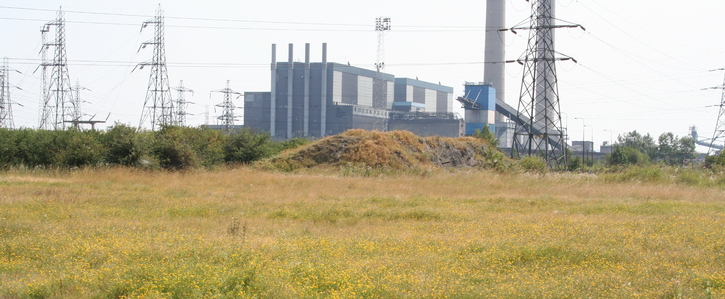50,000 signatures reached
To: The Planning Inspectorate
For Bugs' Sake - Stop Tilbury Expansion
This campaign has ended.

We oppose the Tilbury 2 development because of the impact it will have on the nationally important populations of bees and other insects that live there.
Why is this important?
The former Tilbury Power Station site supports an amazing assemblage of invertebrates, including 159 species of conservation concern and 31 rare or threatened species; among them the Shrill carder bee (Bombus sylvarum), Blue carpenter bee (Ceratina cyanea), Four-banded weevil-wasp (Cerceris quadricincta), Puff-ball beetle (Caenocara bovistae) and Green malachite beetle (Malachius vulneratus).
Over half of high biodiversity potential brownfield sites in the Thames Gateway have been destroyed since 2007, but Tilbury is an exceptionally important site for open mosaic habitat invertebrates. The mix of substrates, including Pulverised Fuel Ash (PFA) and Lytag, has fostered the development of the unusual drought stressed grasslands, lichen heaths, and herb and lichen-rich grasslands that support the endangered species.
The incredible assemblage of invertebrates currently found on the Tilbury site won’t be able to survive the development. Much positive work is needed to save brownfield biodiversity in the Thames Gateway, but destroying this wildlife jewel will take out one of the last remaining large areas of wildflower rich habitat.
Over half of high biodiversity potential brownfield sites in the Thames Gateway have been destroyed since 2007, but Tilbury is an exceptionally important site for open mosaic habitat invertebrates. The mix of substrates, including Pulverised Fuel Ash (PFA) and Lytag, has fostered the development of the unusual drought stressed grasslands, lichen heaths, and herb and lichen-rich grasslands that support the endangered species.
The incredible assemblage of invertebrates currently found on the Tilbury site won’t be able to survive the development. Much positive work is needed to save brownfield biodiversity in the Thames Gateway, but destroying this wildlife jewel will take out one of the last remaining large areas of wildflower rich habitat.
How it will be delivered
The petition will be delivered on 15 March to the planning inspectorate as part of the evidence Buglife will present against this expansion.


